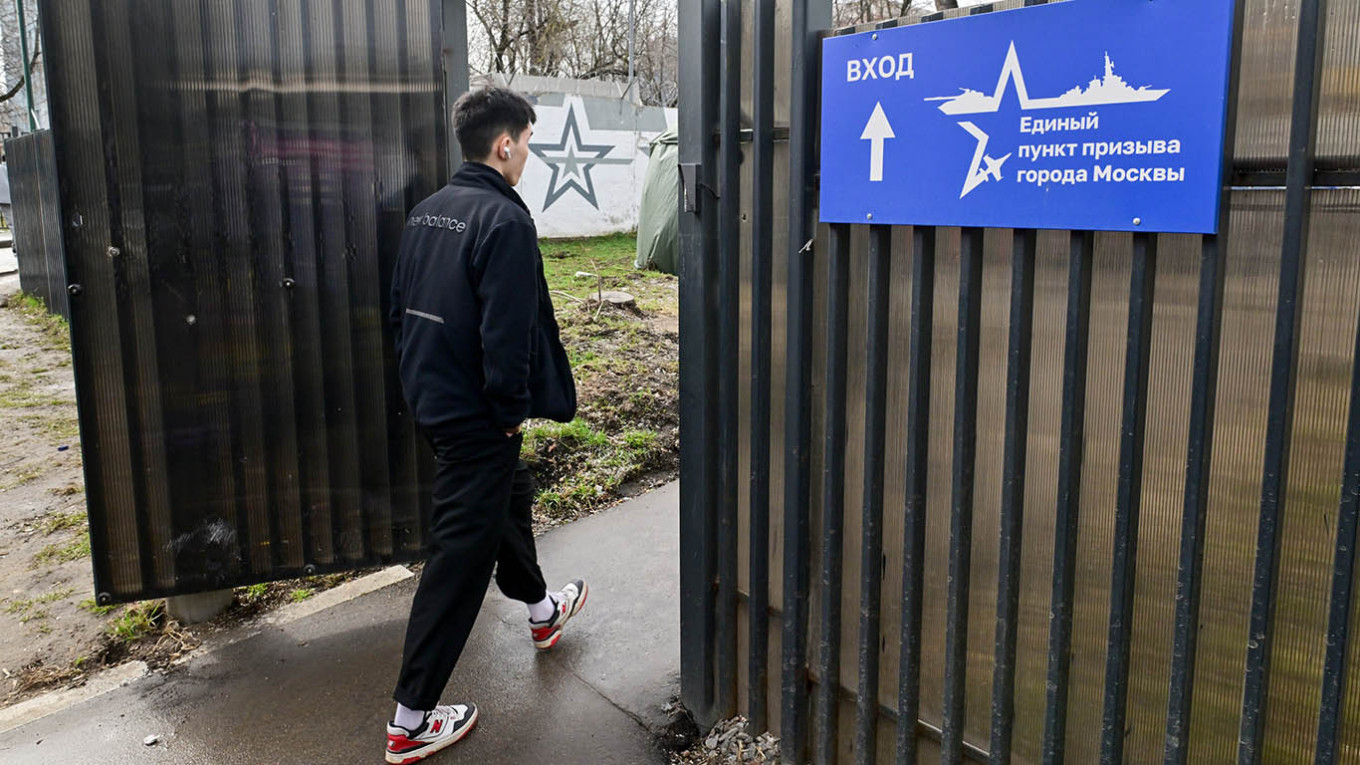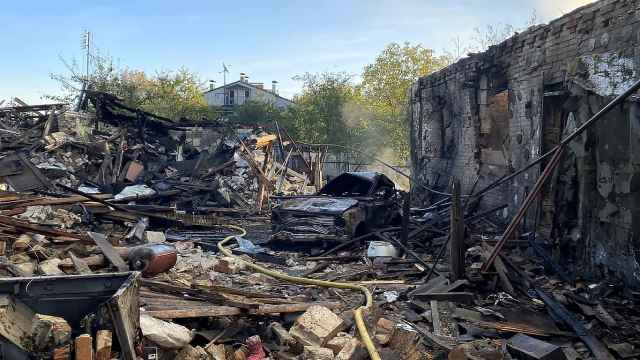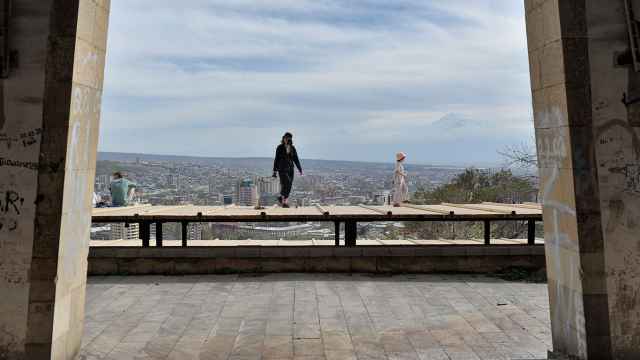Last month, I ran through Reykjavik’s chilly streets as part of a charity race supporting Get Lost, a grassroots initiative that helps Russians avoid military conscription. While running, I kept thinking about people who run not for fun, but for their lives and the lives of others: Russian draftees who refuse to fight in Ukraine and flee Russia, only to find themselves met with suspicion instead of sanctuary.
Despite their courage, Russian draft evaders are rarely seen as protesters at all. Almost daily, I find myself stuck in the same tired conversations with people in the West: Why do Russians still not protest?
My answer is the same every time. Under a brutal authoritarian regime, protest often takes different forms — quiet, hidden, sometimes invisible: refusal, silence, desertion.
In many cases, these are not signs of cowardice, but actual acts of resistance. Every Russian who chooses not to take part in this all-consuming war is a modest triumph. Yet in much of Europe, their refusal is not celebrated.
In some cases, it is almost punished. Just days ago, Germany quietly paused its humanitarian visa program — one of the last legal pathways for Russians at risk due to anti-war, journalistic or human rights activity.
After Russia’s full-scale invasion of Ukraine in February 2022, the EU rightly opened its doors to millions of Ukrainian refugees. But there was another, concurrent trend of Russians escaping a tightening web of repression — especially men fleeing not from bombs, but from orders to drop them. Tens of thousands left, and many are still fleeing, as the Kremlin’s so-called partial mobilization was never officially called off.
Some burned their draft papers, others crossed borders on foot. Many sought asylum across Europe. Too often, they were ignored or outright rejected. Branded as cowards, opportunists, or worse, these men now find themselves in a no-win situation: criminalized at home for refusing to fight, and distrusted abroad for not resisting loudly enough. Caught in the middle, they are punished either way. In many EU states, draft evaders are not seen as victims of war, but as part of the problem — if not complicit.
In the Baltics and Poland, political leaders routinely frame these men as national security threats. A joint statement from their governments claimed Russian draft dodgers pose a “serious threat to public security” and may undermine the “stability” of their societies. Some officials go even further, conflating draft evaders with tourists, suggesting they are seeking comfort, not refuge.
Others accuse them of cowardice, of leaving too late, of failing to protest, of dodging their moral duty to resist from within. “They should stay and fight. Against Putin,” tweeted Lithuania’s then-foreign minister Gabrielius Landsbergis.
Other countries take a more nuanced — if still flawed — approach. Dutch authorities distinguish between men who have received draft notices and those who have not, arguing that without imminent danger, asylum is not warranted. As one Dutch official put it, trying to justify denials, “Russians are no longer at immediate risk of being called up.” But that is not true — they are.
German officials expressed more sympathy. They recognize the dangers faced by “Russian dissenters,” acknowledging that opposition to Putin’s regime can bring repression or worse. Statements often praise the “courage” of those who resist. But even here, protection is conditional. As one official noted, “Anyone who hates Putin’s path and loves liberal democracy is warmly welcomed.” How, exactly, do you measure a person’s love of liberal democracy?
This line of thinking is dangerous. Resistance becomes something you must perform publicly, or not at all. But that is not how authoritarianism works. Nor is it how international law works, either.
Under international refugee law, fear of punishment for desertion or draft evasion does not automatically qualify someone as a refugee. But it does not disqualify them either. The same applies under European human rights law. Article 9 of the European Convention on Human Rights protects the right to conscientious objection.
It is true that in 2020, the European Court of Human Rights ruled that Russia provided civilian alternatives to military service. But that ruling came before the full-scale invasion of Ukraine.
Today, asylum claims must be assessed ex nunc — based on the current reality. And the reality is that Russia has become far more repressive, with few, if any, safe alternatives to military service. Cases must be judged in the context of today’s war and deepening authoritarianism — not the Russia of five years ago.
But legal standards are only part of the story. Just as important is public perception and who we see as deserving of protection.
The question of who deserves help runs deep through refugee policy studies. It is deeply gendered, racialized, and moralized. Since the refugee crisis of 2015, researchers have shown how narratives determine who gets protection. Those seen as ideal victims — women, children, the visibly injured — are welcomed.
But young Russian men? They sit at the bottom of this hierarchy. Russian draft evaders are not loud enough to be heroes and not victimized enough to be worth protecting. They occupy a liminal space of multiple, somewhat contradicting identities of being aggressors, victims, refugees, all at once.
I know from my own experience that saying no to war takes real courage in today’s Russia. Very few Russians have the luxury of being dissidents in the romantic sense people want. In reality, you do not get to choose your moment of bravery under authoritarianism. For many, fleeing the draft is the only political agency they have left.
29-year-old Andrei ended up stuck in legal limbo in Berlin. He fled Russia after the 2022 partial mobilization. At home, he ran a Telegram channel and a blog, which were blocked by authorities for “discrediting the armed forces.”
Once in Germany, he applied for asylum, submitting court summonses, articles, and live-stream evidence to support his case. But his application was denied. Officials claimed he was not prominent enough to be at risk. To them, because he was not a politician, nor a journalist, he was not someone likely to draw attention. “Do I have to be the second Navalny to get asylum?” he asked.
One line keeps showing up in official statements: “Entry to the EU is a privilege, not a right.” But this is not about handing out tourist visas to Russian draft dodgers so they can enjoy wine and tapas. This is about protection and, ultimately, about life or death: for Ukrainians under attack and for Russians who refuse to become attackers.
In July 2023, more than 60 Russian and international anti-war initiatives urged the European Parliament and the European Commission to grant protection to conscientious objectors, deserters, and those who surrendered or were captured, warning that these people face criminal prosecution or even extrajudicial violence if returned to Russia. Yet, no coordinated EU response has followed.
As European governments revisit their asylum and migration policies in light of new security threats, it is time to rethink how we treat Russian draft evaders — and, more broadly, any Russian fleeing the regime. They may not fit neatly into traditional categories of persecution, but their stories speak to the complex, often quiet forms of resistance under authoritarianism. Silent defiance is still defiance — and it deserves protection, not suspicion.
A Message from The Moscow Times:
Dear readers,
We are facing unprecedented challenges. Russia's Prosecutor General's Office has designated The Moscow Times as an "undesirable" organization, criminalizing our work and putting our staff at risk of prosecution. This follows our earlier unjust labeling as a "foreign agent."
These actions are direct attempts to silence independent journalism in Russia. The authorities claim our work "discredits the decisions of the Russian leadership." We see things differently: we strive to provide accurate, unbiased reporting on Russia.
We, the journalists of The Moscow Times, refuse to be silenced. But to continue our work, we need your help.
Your support, no matter how small, makes a world of difference. If you can, please support us monthly starting from just $2. It's quick to set up, and every contribution makes a significant impact.
By supporting The Moscow Times, you're defending open, independent journalism in the face of repression. Thank you for standing with us.
Remind me later.








